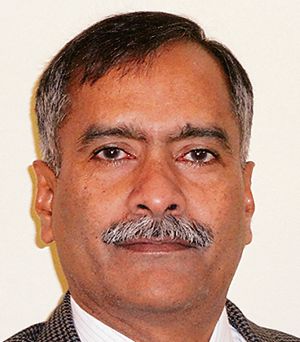Remembering Chacha Nehru
IN present-day India, Pandit Jawaharlal Nehru’s name evokes a wide spectrum of views — from being the architect of modern India who set our country on the path of progress after the ruinous Partition to the leader who neglected the armed forces, leading to the disastrous 1962 war. There is also the everlasting remembrance of him as Chacha Nehru — one who loved children, and possibly, was himself a child at heart.
My parents grew up when the Independence movement was at its peak in the 1930s and 1940s; Gandhi and Nehru were revered, actually worshipped, as I was to find out later. As a child in the early 1960s, I had the privilege of seeing India’s first PM at close quarters. I will always remember him as Chacha Nehru.
It was a hot afternoon in Bhopal in 1963. The Lal Parade Ground was jam-packed. Our neighbour, who was in the Madhya Pradesh police, was on duty at the venue for the Prime Minister’s address. I hitched along and remember being hoisted on someone’s shoulders when Nehruji passed within hand-shaking distance and climbed on to the raised platform. Of course, I do not remember a word of what he said as I was just an eight-year-old kid, but there he was — in his white achkan and Gandhi topi with his trademark red rose in a buttonhole, waving to the multitude — and I thought, to me too. My day was made!
People who had lived during the freedom struggle worshipped him, as I saw at a family gathering the next year in Bombay. It was May 27, 1964, and All India Radio informed the nation that Nehruji had died. Life, literally, stopped. It was a strange sight for us kids to see the elders, including my grandparents who were in their seventies, crying inconsolably and unashamedly.
India had lost a great son. By then, I had got into the habit of reading newspapers. Nehruji had not been keeping good health after the shock of the 1962 defeat and there was the talk of ‘After Nehru, who?’ The fact that there was a smooth transition and we got a new leader in Lal Bahadur Shastri was a tribute to the nurturing of democracy by our leadership.
In his masterpiece, The Discovery of India, two passages in the introduction by Sunil Khilnani stand out for me. First, that Nehru, brought out “… the defining trait of Indian history (which was)... India’s capacity to contain divisions and transform them into diversity.” And second, that he “… won through to the recognition of Indian individuality, of myriad private universes of thought and feeling, and to see that as being precisely the source of India’s strength.”
As we observe Children’s Day, let’s remember the Indian who laid the foundation of a modern and secular India — Nehru.









